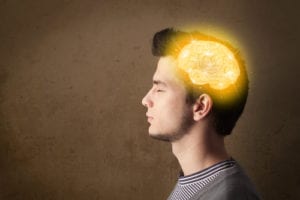Research has found that substance abuse or recreational experimentation with drinking or drug use in adolescent years has a long lasting effect. People are more likely to become fully developed addicts or alcoholics if they experimented with substances in their early years. Additionally, it can cause an early reaction to substance abuse, creating long lasting damage in the heart, brain development, and more.
Adolescence is a precious time. The body is ripe for formation. Hormones are changing, personality is developing, and memories are being made. The memories we make in adolescence are some of our strongest memories. Our early teenage years and our early twenties can feel more vivid and alive than any other time. If our memories of those nostalgic years are riddled with episodes of substance abuse, our brain has a funny way of making that association for a lifetime.
Memory Bias
According to Medical Daily, the way in which we recall our adolescence is actually what is called a memory bias. Memory biases are peculiar ways in which the brain values certain memories over others. The phenomenon, Medical Daily reports, is called a “reminiscence bump”. Due to the critical development of who we are during these formative years, our memories are most vivid because they contributed to that sense of self. It is a result of developing self-awareness, some researchers believe.
Substance Abuse And The Identity
For many people, late teenage years and the early twenties are spent in college. The early adult years are cultured to focus on developing a sense of self- who one is, what they believe, what they stand for, and what they want to do with their lives. Many in that age bracket start abusing substance in an effort to deal with the existential pressure, in addition to stress caused by school, debt, work, and responsibility. Coincidentally, the identity-lessness becomes part of that memory making. Problematically, the substance abuse used to cope with the difficulty of developing and maintaining and identity does as well. Consequently, one’s identity essentially becomes their search for identity, by way of substance abuse.
Recovery And Recovering The Identity
The treatment process is about starting over completely. By the time one’s substance use disorder has gotten to a point necessitating treatment, they typically have very little connection to their authentic self. Therapy, various treatment methods, and holistic healing modalities serve to help regenerate that connection. Recovery is a process of rediscovering what one likes, doesn’t like, cares about, is impassioned by, and so forth. Though substance abuse in younger years causes progressive damage, recovery is a lifestyle of progressive healing.
Avalon By The Sea serves to help each resident reclaim their identity, free from the bondages of drugs and alcohol. Certified for dual diagnosis treatment, Avalon provides the most comprehensive care for mental health. For a confidential assessment or more information on our residential treatment programs, call 1 888-958-7511.











